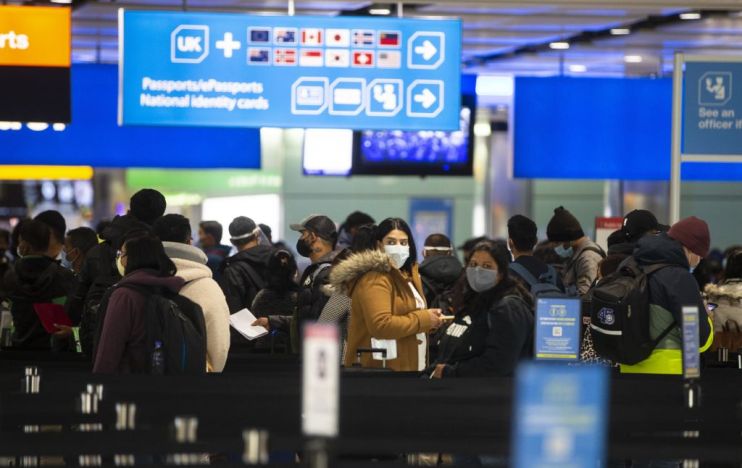Grant Shapps has reopened travel but plans to manually check vaccine statuses is out of the dark ages

Yesterday, Grant Shapps announced the new plans to finally allow the travel sector to reopen by allowing fully-vaccinated people to skip quarantine upon return from Amber list countries. However, the Transport Secretary admitted travellers should “expect” queues at border control as a result of the stack of paperwork passengers now need to fill out. Despite persistent delays, ministers have failed to tackle the problem head-on by upgrading e-passport gates.
Currently, Border Force officials are forced to manually check all covid test results and passenger locator forms. Under the new rules, vaccination status will also need to be checked, adding a further burden on under-staffed airports.
With the number of travellers expected to increase rapidly after a year of pent-up demand for travel, the capacity issue has become even more acute. The challenge is solvable. The technology already exists to automate the border control system, but so far almost no extra systems have been implemented to enable people to use existing e-gates, alongside their NHS app.
Instead, former Prime Minister Theresa May suggested bringing in extra staff to solve the problem.
Outside of the stone age, the stance of putting more boots on the ground seems ludicrous and will do little to alleviate the growing pressures on border force officials. Manual and paper-based solutions cannot seriously be way forward.
The most effective solution would be by a central database that coordinates passport ID as well as the Covid status of each individual. An e-passport contains an electronic chip which holds the same information that is printed on the passport’s data page: the holder’s name, date of birth and other biographic information. In theory, the database should be able to store information on the individual’s vaccination status. Or, at the very least, the e-gates should be enabled with QR codes, now ubiquitous thanks to track and trace, in order to authenticate the vaccination status.
With QR codes, there is of course the risk of fraud. They were never designed to be used as a biometric communication tool for healthcare, but rather a simple tool for retailers. Adding a fingerprint, or even facial recognition, into the NHS app would provide more security.
The lack of interest in exploring these options, however, goes to the heart of the problem. Ministers are uninterest in ensuring the systems which underpin our lives are the best we have to offer. Only months ago, people being forced to quarantine in hotels were waiting side-by-side with people who would enter the country freely. Rules are continually undermined by impotence and political performance. The image of doing something, as always, outweighs the benefits of doing the thing well.
In 2019, the travel and tourism industry was worth 10.9 per cent of GDP. That figure halved to 5.5 per cent during the pandemic. If Mr Shapps takes his job seriously as Transport Secretary, he must ensure the reopen of travel is safe and efficient. Or he risks overseeing a short-lived reopening, quickly closed down by the entrance of the new variants we have grown to fear.